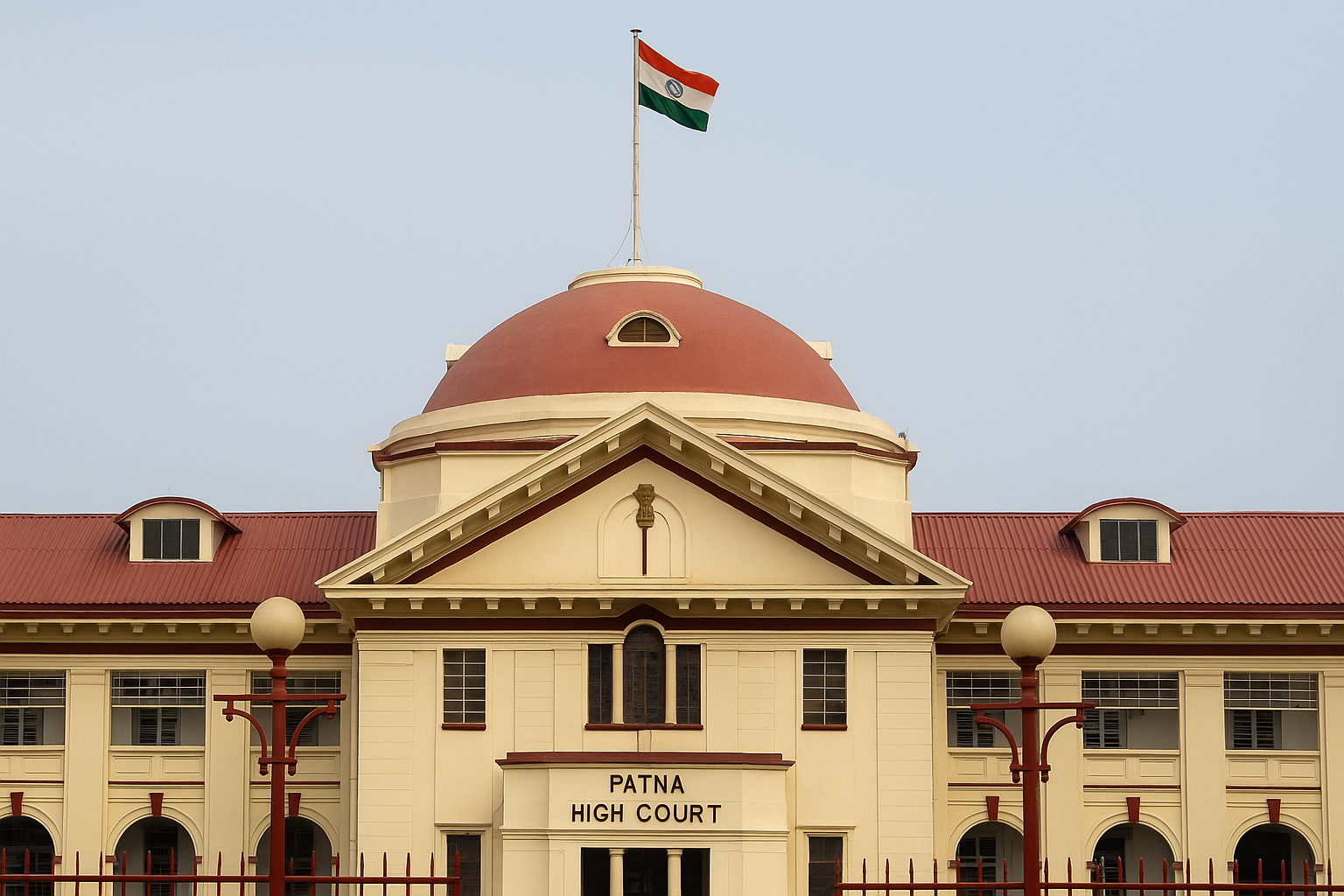Simplified Explanation of the Judgment
In a recent decision, the Patna High Court dismissed a writ petition filed by a catering firm challenging a service tax demand raised by the Central Goods and Services Tax (CGST) Department. The dispute centered around whether license fees paid by the catering firm to Indian Railways for operating catering services in trains were liable to service tax under the reverse charge mechanism.
The petitioner—a catering partnership firm—had been awarded a license by Indian Railways to provide catering services on certain trains, including Shramjivi Express. As part of the contract, the firm paid significant license fees to Indian Railways. These fees were alleged by the Department to be in the nature of “support services” provided by the government, and thus taxable under the Finance Act, 1994.
An investigation led to the issuance of a Show Cause Notice (SCN) in April 2019, which culminated in an adjudication order confirming a service tax demand of ₹1.38 crores, along with interest and equal penalty under Section 78 of the Finance Act, 1994. The department argued that the services provided by Railways—like the use of pantry cars, kitchen space, and marketing rights—constituted “support services” to a business entity, which were not exempt under the negative list and were taxable on a reverse charge basis.
The petitioner raised several legal challenges to the demand, including:
- The absence of pre-show-cause consultation,
- Lack of jurisdiction and non-examination of the proper charging section (Section 66B),
- Bar of limitation, and
- The claim that licensing by Railways did not amount to “support services.”
The High Court, after detailed consideration, rejected these contentions. It emphasized that the petitioner had an alternative statutory remedy of appeal under Section 85 of the Finance Act, 1994, which it failed to exhaust before invoking writ jurisdiction under Article 226 of the Constitution.
The Court further observed that the issue of whether the extended period of limitation was rightly invoked, or whether the services provided by Railways were “support services,” required examination of facts and contractual terms. These, it held, were best examined by the appellate authority and not in writ proceedings.
The Court clarified that the petitioner had participated in adjudication proceedings without raising a timely challenge to the SCN itself. Therefore, the procedural lapses like pre-SCN consultation or interpretation of law did not render the demand order void on their face.
Ultimately, the Court declined to intervene in the matter, dismissing the writ petition. However, it granted liberty to the petitioner to approach the appellate authority within eight weeks and directed the appellate authority to condone the delay considering that the writ had been pending since 2023.
Significance or Implication of the Judgment
This judgment is significant for businesses and service providers working under licenses or contracts with government bodies like Indian Railways. It reaffirms that such license agreements may attract service tax under the reverse charge mechanism if the underlying services fall within the definition of “support services.”
The decision also serves as a reminder that procedural contentions like lack of pre-show-cause consultation or limitation must be raised at the earliest opportunity. Importantly, the judgment reiterates the principle that writ remedies should not be used to bypass the available appellate mechanisms, especially when disputed issues involve interpretation of contracts and factual inquiry.
Legal Issue(s) Decided and the Court’s Decision with reasoning
- Whether license fees paid to Indian Railways attract service tax as “support services”?
- Court’s Finding: Yes, prima facie. The Court accepted the adjudicating authority’s reasoning that Indian Railways provided infrastructure, logistics, and operational assistance—qualifying as “support services” under Section 65(104C).
- Whether the demand was time-barred under Section 73(1) of the Finance Act, 1994?
- Court’s Finding: No. The Court held that the extended limitation period of 5 years was rightly invoked due to wilful suppression and non-disclosure by the petitioner.
- Whether absence of pre-show-cause consultation rendered the SCN void?
- Court’s Finding: No. The Court distinguished this case from others, holding that participation in the adjudication proceedings without challenging the SCN waived that objection.
- Whether writ jurisdiction should be invoked when an alternative appellate remedy is available?
- Court’s Finding: No. The High Court emphasized that statutory appellate remedies must be exhausted before approaching writ courts unless exceptional circumstances exist.
Judgments Referred by Parties (with citations)
- Amadeus India Pvt. Ltd. v. Principal Commissioner, Central Excise — 2019 SCC OnLine Del 8437
- Cosmic Dye Chemical v. Collector of Central Excise, Bombay — (1995) 6 SCC 117
- Commissioner of Central Excise, Bangalore v. Karnataka Agro Chemicals — (2008) 7 SCC 343
- C.C., C.E. & S.T. Bangalore v. Northern Operating Systems Pvt. Ltd. — (2022) 17 SCC 90
Judgments Relied Upon or Cited by Court (with citations)
- State of Maharashtra v. Greatship (India) Ltd. — Civil Appeal No. 4956 of 2022
- M/s Kelkar & Kelkar v. M/s Hotel Pride Exec. Pvt. Ltd. — Civil Appeal No. 3479 of 2022
- Godrej Sara Lee Ltd. v. Excise and Taxation Officer — 2023 SCC OnLine SC 95
- CWJC No. 10644 of 2024 — Ramnath Prasad v. Principal Commissioner, CGST and Central Excise
Case Title
M/s Singh Caterers and Vendors v. Directorate General of GST Intelligence & Ors.
Case Number
Civil Writ Jurisdiction Case No. 3390 of 2023
Coram and Names of Judges
Hon’ble Mr. Justice Rajeev Ranjan Prasad
Hon’ble Mr. Justice Ramesh Chand Malviya
Names of Advocates and who they appeared for
- For the Petitioner: Mr. Gautam Kejriwal, Mr. Mohit Agrawal, Mr. Lokesh Kumar, Mr. Akash Kumar
- For the Respondents: Mr. K.N. Singh (ASGI), Mr. Anshuman Singh (Sr. SC, CGST & CX), Mr. Shivaditya Shahi Sinha
Link to Judgment
6c7b20bc-af77-49b2-aea1-3d197307a494.pdf
If you found this explanation helpful and wish to stay informed about how legal developments may affect your rights in Bihar, you may consider following Samvida Law Associates for more updates.








